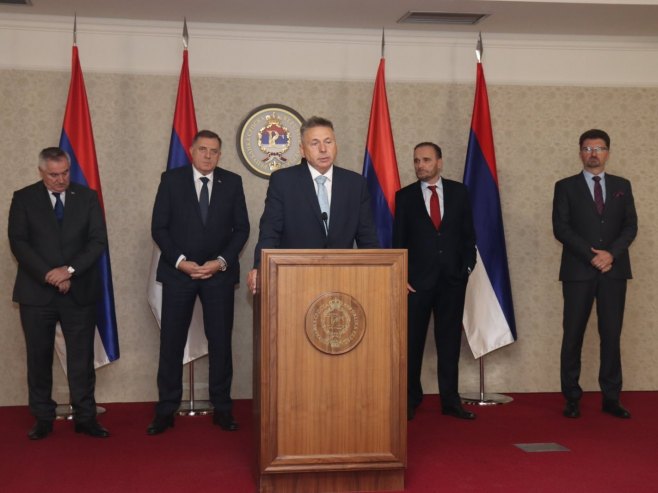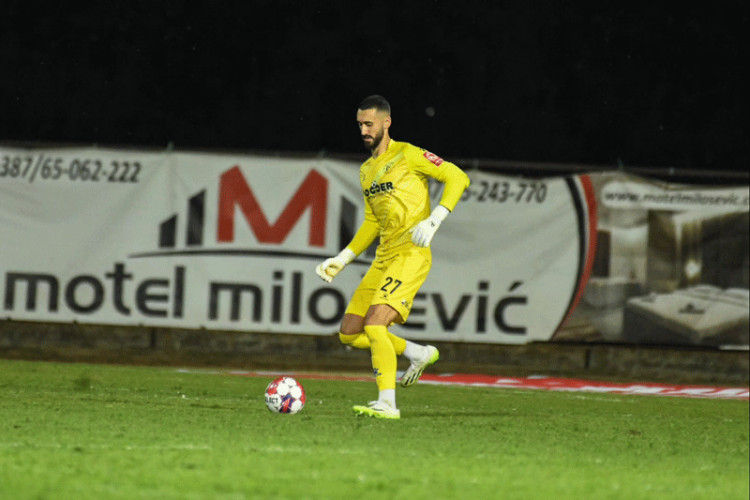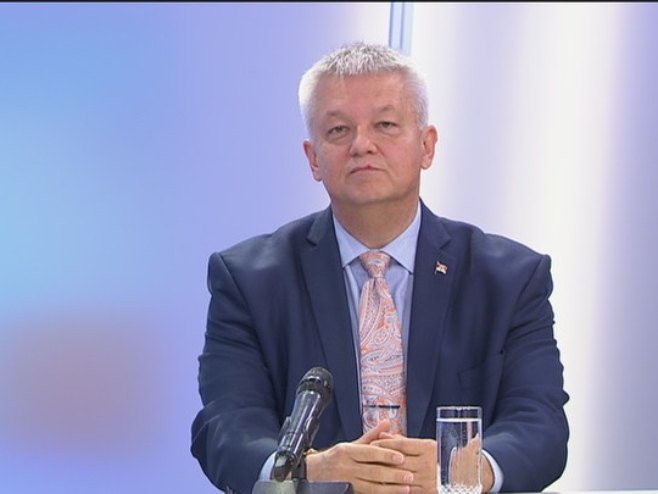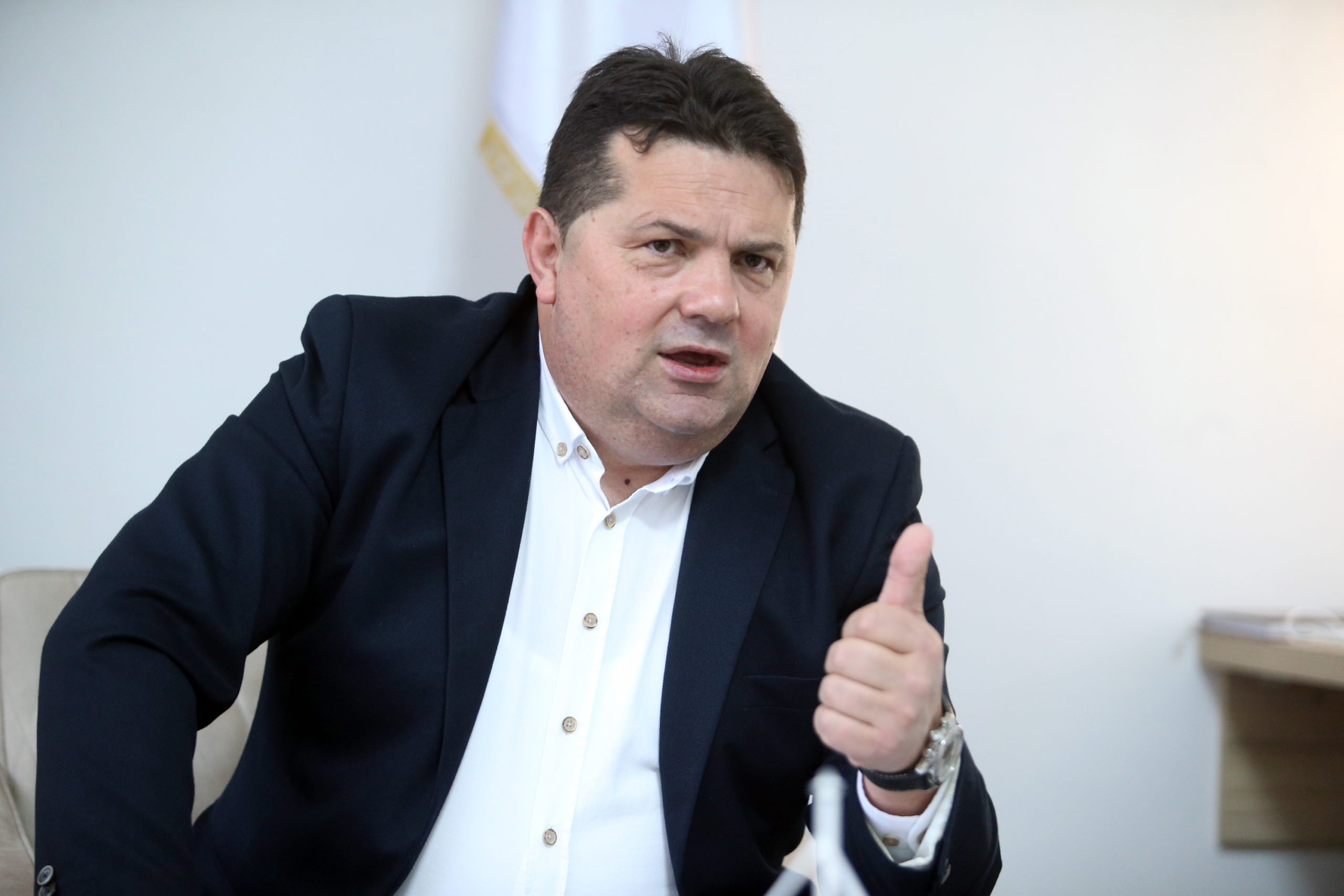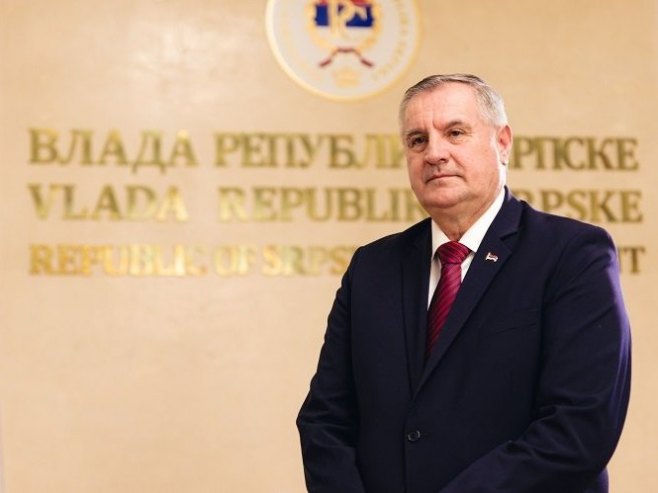The defense attorney for the President of Republika Srpska, Goran Bubić, stated that witnesses at today’s hearing involving President Milorad Dodik and Acting Director of the Official Gazette Miloš Lukić confirmed that the key document—Annex 10 of the Dayton Agreement, which they searched for on the UN website—is not authentic.
“We’ll see what decision the court will make regarding this issue, and the same can be said about the audio recording concerning President Dodik’s speech on the 81st anniversary of the Battle of Kozara. While the content is principled, such statements cannot be formally admitted as evidence,” Bubić explained, adding that the court had previously refused to admit similar statements made to the media as evidence at the start of the proceedings.
He emphasized that it is unacceptable, unlawful, and a violation of fair trial standards for the Prosecutor’s Office of Bosnia and Herzegovina to question witnesses about an investigation initiated after the trial against the President of Srpska began.
Bubić also confirmed that the trial would continue on November 20.
Attorney Anto Nobilo agreed that the prosecution failed to obtain the key evidence—Annex 10 of the Dayton Agreement.
“What fascinates me is the approach of the prosecutors. When building a legal strategy, they could make five possible mistakes, and they end up making all five. They should have obtained the original document, the foundation of this case, part of the Dayton Agreement, Annex 10. They needed to approach the signatory governments. Most governments have the original, and they could have provided a certified copy, avoiding issues,” Nobilo said.
He noted that instead, the prosecutors chose to “be adventurous” by visiting the UN Security Council website, which only shows the signatures, not the full agreement.
“To create the appearance of a legitimate document, they instructed SIPA employees to access the website and ‘download’ it, calling this an investigative measure. They tried to legitimize it. They have a problem because the investigation is complete, and having SIPA workers look at a website does not yield the actual document. We’re dealing with technicalities. Securing the Dayton Agreement should have been a simple task for the prosecution from day one. It’s remarkable how the prosecutors create hurdles for themselves, and we end up spending time on technical matters,” Nobilo added.
Attorney Goran Petronijević highlighted the complete ineptitude of the Prosecutor’s Office and the abuse of procedural rights, which the Court tolerates.
“This court is beginning to judge like the Hague Tribunal—by rules, not by law,” Petronijević stated.
He clarified that the difference between law and rules is that rules rely on force, while law is based on consensus and agreement, which is then documented and respected.
“This is a huge difference. If you replace law with rules, you’re undermining international law,” Petronijević added.
Petronijević also challenged any legal expert to find any mention of an institution similar to the High Representative in the Vienna Convention, which governs international diplomatic activities.
“The invention of this institution, granting it non-existent powers, and turning it into a substitute for state institutions is undermining the state, although they believe it helps with its functioning,” Petronijević argued.
Attorney Miljkan Pucar said the Prosecutor’s Office attempted to conduct an investigation as part of the main hearing, contrary to the Criminal Procedure Code.
Pucar emphasized that the translated version of the Dayton Peace Agreement obtained by the Prosecutor’s Office from the internet is dangerous for Bosnia and Herzegovina, as it states that the High Representative “has jurisdiction,” whereas the original document specifies that they may only interpret Annex 10.
He clarified the critical difference between granting someone jurisdiction and allowing them to interpret; interpretation means adhering to what is written, while jurisdiction implies the ability to enact decisions, which the High Representative does not have under Annex 10.
“I am convinced that this was done intentionally to complicate the proceedings and to try to prove not only that this indictment is valid but also that we have been misapplying the High Representative’s authority,” Pucar said.
To recap, a hearing took place in the Court of Bosnia and Herzegovina involving the President of Republika Srpska, Milorad Dodik, and Acting Director of the Official Gazette, Miloš Lukić, during which SIPA inspectors Petar and Nikola Đukić testified.
Source: RTRS



